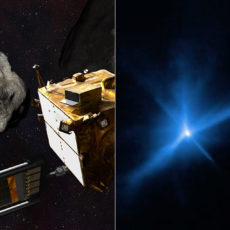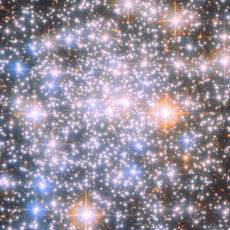
NASA / ESA’s Hubble Space Telescope observes IC 10, the closest known starburst galaxy to our Milky Way, at a distance of 2.2 million light-years. Its faint, ghostly appearance makes it very difficult to study, especially since it’s located along a line-of-sight that’s filled with cosmic dust and stars.

IC 10 is constnatly undergoing a furious bout of star formation, thanks sto ample supplies of cool hydrogen gas. This gas condenses into vast molecular clouds, which then form into dense knots where pressures and temperatures reach a point sufficient to ignite nuclear fusion, resulting in new generations of stars.
- NASA rocket model kit – Launch into a creative project with the LEGO Icons NASA Artemis Space Launch System model building project for adult space...
- What’s in the box? – This creative building set includes everything you need to craft a multistage rocket with 2 solid-fuel boosters, an Orion...
- Features and Functions – This NASA-themed rocket model features retractable launch tower umbilicals, rocket support and crew bridge, detachable...
In fact, IC 10 only became known to humankind in 1887, when American astronomer Lewis Swift spotted it during an observing campaign. The small galaxy remains difficult to study even today, because it is located along a line-of-sight which is chock-full of cosmic dust and stars,” said the NASA Hubble Mission Team.













